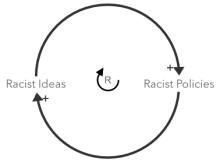Conducting Policy Relevant Research to Mitigate and Prevent Environmental Health Inequities

Department: Global, Environmental, and Occupational Health (GEOH)
Director: Devon Payne-Sturges
Room Number: 2234L
Office Phone Number: (301) 405-2025
Email: dps1@umd.edu
The Environmental Health Systems and Policy Lab aims to address long standing environmental health inequities using traditional epidemiological, human health risk assessment and innovative systems science methods to improve policies that impact the health of communities and populations, especially vulnerable, low income and minority populations.
We welcome intellectually curious and motivated undergraduates, graduate students and post-docs to join the Environmental Health Systems and Policy Lab. Undergraduate students interested in a mentored independent research experience in environmental health and policy, please complete a Research Assistant Application. Dr. Payne-Sturges also mentors students in the MPH and PhD in Environmental Health Sciences programs. For more information, please contact her directly at dps1@umd.edu.
"Count chemicals, not just calories"
Collaborators
What policy insights can we gain by examining cumulative environmental health risks/impacts using a system dynamics approach?
The concept of cumulative risks/impacts represents the synergistic health effects of the accumulation of multiple harmful environmental exposures. Therefore, we are using system dynamics, a systems science method that posits that the feedback structure of a system gives rise to its behavior (e.g., accumulations and trends over time), to illustrate how insights can be gained, using combined effects of environmental chemical contaminants and social stressors on disparities in children’s neurodevelopment as an illustrative example. This work is supported by NIEHS K01ES028266.
Does air quality impact math ability?
Mathematical performance in young children has been found to be an indicator of later academic and professional success. The quality of this performance, among other metrics of neurocognitive development, has been found to be negatively affected by poor air quality caused by pollution. Our Bridging the Environment and Neurodevelopment for Children’s Health (BENCH) Study seeks to understand whether the air quality a child experiences impacts his/her mathematical ability. Children (ages 7-10) are given a low-cost air quality monitor, which they carry for three days. At the end of the third day, children complete a brief series of age-appropriate mathematical computer games to assess his/her mathematical ability. This project is supported by UMD Catalyst fund
Why, with much known, so little has been done to address chemical mixtures exposures and cumulative environmental health risks/impacts?
Significant research investments have been made to develop methods to assess the combined effects of multiple chemical exposures, and literature on the cumulative health effects of joint exposure to chemical and social stressors is growing. However, little progress has been made to advance federal and state policy responses to scientific findings about cumulative impacts and risk. We use science policy archival research and content analysis, ethnographic research methods, and policy analysis to examine the scientific, social, and political framings of cumulative impacts and risk, and how they are understood and acted upon by legislators, environmental and public health agencies, business leaders, advocates, and other key stakeholders. Current work examines the impasse at Federal level and builds upon recent analysis of the failures of the Maryland General Assembly to enact legislation on cumulative impacts.
What role do neurotoxic chemicals and pollutants play in disparities in neurodevelopmental health outcomes for children living in the U.S.?
A mind is a terrible things to waste and Project TENDR (Targeting Environmental Neuro-Development Risks), an alliance of more than 50 leading scientists, health professionals and advocates, is focused on preventing exposures of children and pregnant women to toxic substances that are harmful to brain development and eliminating disproportionate exposures to children of color and children from low-income families. In contribution to these goals, we are conducting a systematic scoping review to map the existing literature for the relationships between, exposures to 7 exemplar neurotoxic chemicals and pollutants and disparities in neurodevelopmental health outcomes for children living in the U.S.
What interventions are effective at reducing exposure to endocrine-disrupting chemicals (EDCs)?
Human exposures to EDCs are pervasive. EDCs such as bisphenols and phthalates are found in foods, food packaging, paper products, consumer and personal care products. I always say “count chemicals, not just calories”. But once we count them, we need practical solutions to reduce multiple chemical exposures. Our previous work has shown that healthier diets were associated with decreased exposure to BPA, but not BPF or BPS. Intervention studies are needed to assist the public in limiting their exposure to BPA, BPA alternatives and other EDCs. We are conducted a systematic review on interventions to reduce exposure to EDCs, including BPA, BPS, BPF, and phthalates. Interventions of interest included both behavioral and policy interventions. Our protocol is registered with PROSPERO, protocol CRD42020196726 (https://www.crd.york.ac.uk/prospero/display_record.php?ID=CRD42020196726).
How can we unpack the mechanisms of structural racism through which this reinforcing feedback operates?
We are extending our work using system dynamics to examine structural racism and its relationship to environmental inequities. Structural racism (SR) has been defined as “the macro level systems, social forces, institutions, ideologies, and processes that interact with one another to generate and reinforce inequities among racial/ethnic groups” (Gee and Ford 2011; Powell 2008). A hallmark of the system dynamics (SD) approach is the integration of multiple sources of structural data to represent complex systems through the use of causal loop diagrams (CLDs) and other qualitative mapping approaches. Since summer 2021, we are facilitating ongoing seminars among researchers and experts in environmental exposures, child neurodevelopment, education, environmental health policy, system dynamics modeling, and the study of structural racism to explore the contribution and potential application of system dynamics diagramming conventions to illuminate mechanisms and pathways of structural racism related to cumulative environmental stressors and children’s neurodevelopment.
Director
Devon Payne-Sturges
Associate Professor, Global, Environmental, and Occupational Health
Director, Environmental Health Systems and Policy Lab
Graduate Students
Natalie Crnosija
Doctoral student, Global, Environmental, and Occupational Health and Global STEWARD
Rosemary Ezeugoh
Doctoral student, Global, Environmental, and Occupational Health
Michele Morgado
Doctoral student, Global, Environmental, and Occupational Health and Global STEWARD
Danielle Delp
Doctoral Student, College of Agriculture and Global Steward
Aimee Malzahn
Doctoral Student, College of Agriculture and Global STEWARD
Jennifer Morash
Doctoral student, College of Agriculture and Global STEWARD
Nicole Sieck
Doctoral student, Global, Environmental, and Occupational Health
Alina Majid
MPH student, Behavioral and Community Health
Sulakkhana De Saram
MPH student, Global, Environmental, and Occupational Health
Undergraduate Students
Alexander Schmidt
Public Health Science Program and statistics major
Selected publications
(*=student/mentee; § =corresponding author; ** =shared first author; + =senior author)
Payne-Sturges DC§, Korfmacher KS, Cory-Slechta DA, Jimenez M, Symanski E, Carr Shmool JL, Dotson-Newman O, Clougherty JE, French R, Levy JI, Laumbach R, Rodgers K, Bongiovanni R and Scammell MK. 2015. Engaging communities in research on cumulative risk and social stress-environment interactions: Lessons learned from EPA’s STAR Program. Environmental Justice. 8(6):203-212. PMID: 27688822.
Boyle MD*, Payne-Sturges DC**, Sangaramoorthy T, Wilson S, Milton D, Nachman K, Babik K, Jenkins CC, Trowell J, and Sapkota A§. 2016. Hazard ranking methodology for assessing health impacts of unconventional natural gas development and production: The Maryland case study. PLoS One. 11(1):e0145368. PMID:26726918
Sangaramoorthy T§, Jamison A*, Boyle MD*, Sapkota A, Payne-Sturges DC, Milton D, Wilson S. 2016. Place-based perceptions of the impacts of fracking along the Marcellus Shale. Social Science and Medicine. 151:27-37. PMID:26773295.
Bennett D, Bellinger DC, Birnbaum LS, Bradman A, Chen A, Cory-Slechta DA, Engel SM, Fallin MD, Halladay A, Hauser R, Hertz-Picciotto I§, Kwiatkowski CF,Lanphear BP, Marquez E, Marty M, McPartland J, Newschaffer CJ, Payne-Sturges D, Patisaul HB, Perera FP, Ritz B, Sass J, Schantz SL, Webster TF, Whyatt RM, Woodruff TJ, Zoeller RT, Anderko L, Campbell C, Conry JA, DeNicola N, Gould RM, Hirtz D, Huffling K, Landrigan PJ, Lavin A, Miller M, Mitchell MA, Rubin L, Schettler T, Tran HL, Acosta A, Brody C, Miller E, Miller P, Swanson M, Witherspoon NO; American College of Obstetricians and Gynecologists (ACOG); Child Neurology Society; Endocrine Society; International Neurotoxicology Association; International Society for Children’s Health and the Environment; International Society for Environmental Epidemiology; National Council of Asian Pacific Islander Physicians; National Hispanic Medical Association; National Medical Association. 2016. Project TENDR: targeting environmental neuro-developmental risks: The TENDR consensus statement. Environmental Health Perspectives. 124(7):A118-22. PMID:4937840.
Shenassa E§, Rossen LM, Cohen J, Morello-Frosch R, Payne-Sturges D+. 2016. Income inequality and U.S. children’s secondhand smoke exposure: Distinct associations by race-ethnicity. Nicotine and Tobacco Research. 19(11): 1292-1299. PMID: 27811157
Payne-Sturges DC§, Scammell MK, Levy JI, Cory-Slechta DA, Symanski E, Carr Shmool JL, Laumbach R, Linder S, Clougherty JE. 2018. Methods for evaluating the combined effects of chemical and nonchemical exposures for cumulative environmental health risk assessment. International Journal of Environmental Research and Public Health. 15(12):pii: E2797. PMID:30544651.
Craddock HA*, Huang D*, Turner PC, Quirós-Alcalá L, Payne-Sturges DC§+. 2019. Trends in neonicotinoid pesticide residues in food and water in the United States, 1999–2015. Environmental Health. 18:1(7). PMID: 30634980.
Payne-Sturges DC§, Marty MA, Perera F, Miller MD, Swanson M, Ellickson K, Cory-Slechta DA, Ritz B, Balmes J, Anderko L, Talbott EO, Miller E, Gould R, Hertz-Picciotto I. 2019. Healthy air healthy brains: Advancing air pollution policy to protect children’s health. American Journal of Public Health 109(4):550-554. PMID: 3078976
van Woerden I*, Bruening M, Montresor-López J*, Payne-Sturges DC§+. 2019. Trends and disparities in urinary BPA concentrations among U.S. emerging adults. Environ Res 176: 108515.
Payne-Sturges DC§, Cory-Slechta DA, Puett RC, Thomas SB, Hammond R, Hovmand PS. 2021. Defining and intervening on cumulative environmental neurodevelopmental risks: Introducing a complex systems approach. Environmental Health Perspectives. 129(3): 35001. PMCID: PMC7945198
Payne-Sturges D§**, Sangaramoorthy** T and Mittmann H*. 2021. Framing environmental health decision-making: The struggle over cumulative impacts policy. Int J Environ Res Public Health 18(8). PMCID: PMC8070174.
Sprinkle R§ and Payne-Sturges D**. 2021. Mixture toxicity, cumulative risk, and environmental justice in United States federal policy, 1980–2016. Environmental Health 20(1).
Payne-Sturges DC§, Gee GC Cory-Slechta DA. 2021. Confronting Racism in Environmental Health Sciences: Moving the Science Forward for Eliminating Racial Inequities. Environ Health Perspect 129(5): 55002. PMCID: PMC8096378.
van Woerden I, Payne-Sturges DC, Whisner CM, Bruening M. 2021. Dietary quality and bisphenols: trends in bisphenol A, F and S exposure in relation to the Healthy Eating Index using representative data from the NHANES 2007-2016. Am J Clin Nutr 114(2): 669-682.









